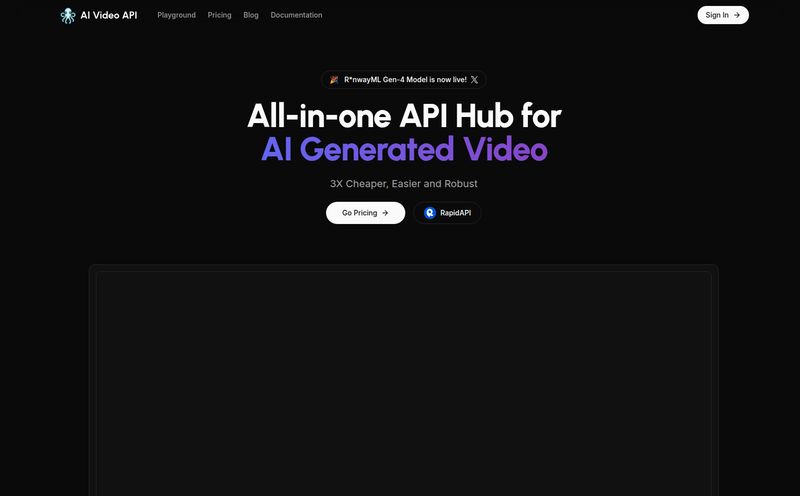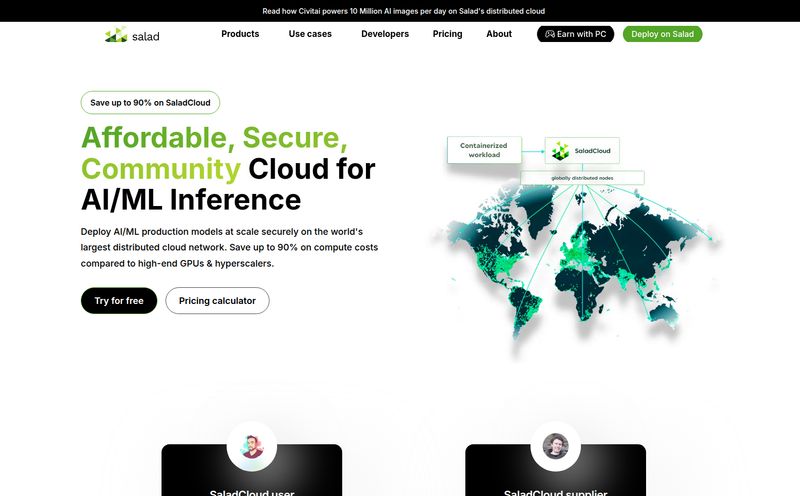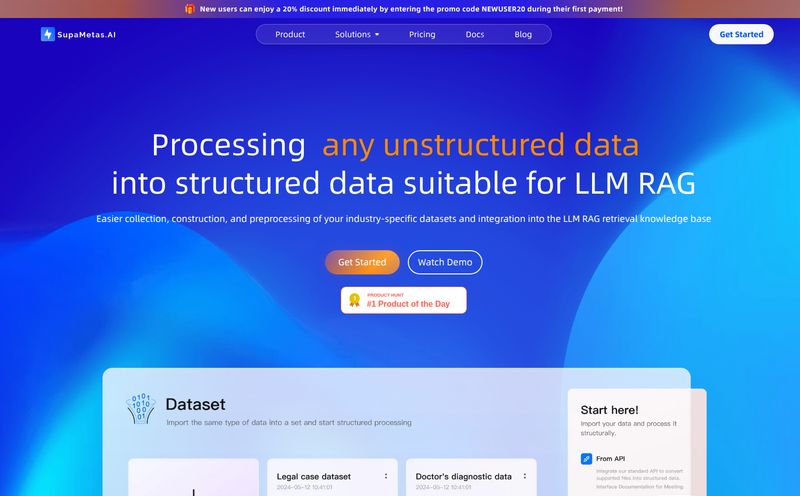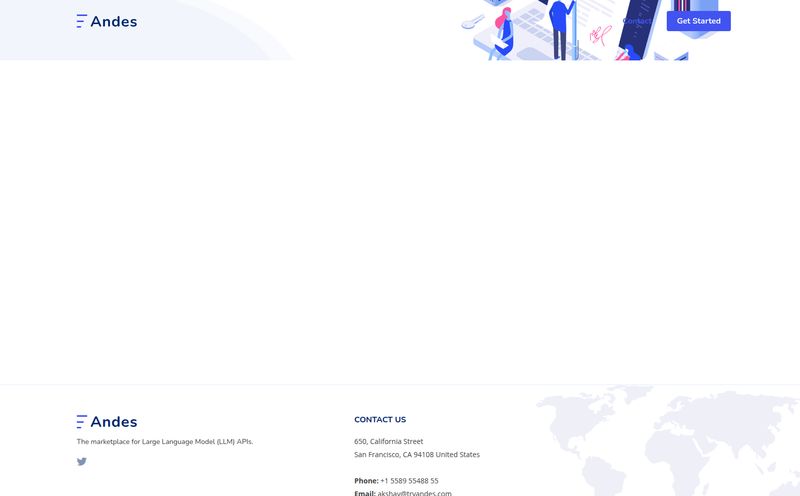If there’s one thing that unites every single person on the internet, it’s a shared, deep-seated hatred for CAPTCHAs. You know the drill. You’re trying to log in, buy something, or just fill out a form, and suddenly you’re met with a cryptic, blurry word that looks like a doctor’s prescription from the 1800s. Or, my personal favorite, the endless game of “click all the squares with a traffic light” which inevitably includes that one square with a tiny, questionable sliver of a pole. Is that a traffic light? Does the AI overlord think it is? Who knows. You fail, you feel a little dumber, and your user experience is shot.
For years, we’ve just… accepted this. We’ve accepted that to prove we’re human, we have to subject ourselves to these tiny, irritating digital roadblocks. It's the necessary evil in the ongoing war against spam bots, right? Well, maybe not. I stumbled across a tool recently called adCaptcha, and the tagline alone—"Human Verification that's Captivating"—was enough to make me stop scrolling. Captivating? A CAPTCHA? Yeah, right. But I decided to look deeper, and what I found was genuinely interesting.
The Old Guard of Bot Protection is Failing Us
Before we get into what adCaptcha does, lets talk about why we even need something new. Traditional CAPTCHAs, especially the big ones from Google, have a few problems. First, they're annoying. We've covered that. They actively create friction and can lead to users just giving up and leaving your site. I've done it. You've probably done it too.
Second, the privacy implications are… murky. When you use a service like reCAPTCHA, you're feeding data into the massive Google ecosystem. It tracks user behavior, mouse movements, and browsing history to build a 'risk score'. While effective, it’s not exactly a privacy-first approach, which is a growing concern for both users and site owners in our post-GDPR world.
And third, the bots are getting smarter. The really sophisticated ones can now solve many traditional CAPTCHAs, meaning you’re annoying your real users for a solution that might not even be working that well. It feels like a lose-lose situation.
So, What Exactly is adCaptcha?
This is where things get cool. adCaptcha throws out the old playbook. Instead of making you decipher unreadable text or identify crosswalks, it uses media-based challenges. Think short video clips or engaging images. The idea is to turn a moment of friction into a moment of potential engagement. It’s a human verification solution that respects the user's time and intelligence. A novel concept, I know.
It’s built on a few core ideas that really resonate with me as someone who manages website traffic and user experience.
Security That’s Actually Secure
First things first, it has to work. According to their site, adCaptcha uses a combination of four different layers of protection to stop bots. They don’t spill all the secret sauce (and they shouldn't), but this multi-layered approach is the right way to think about security. It's not just a single puzzle; it's a comprehensive system designed to root out automated traffic, even the really sophisticated stuff that can mimic human behavior. It’s designed to stop bots in their tracks, not just slow them down.
An Experience That Isn't a Chore
This is the part that got my attention. Instead of a frustrating puzzle, a user might be shown a short ad or a piece of branded content. The interaction is simple and, dare I say it, can actually be interesting. Imagine replacing “Click the bicycles” with a 10-second trailer for a new movie or a cool animation from a brand. The user proves they’re human through a simple interaction with the media, and they get on with their day. It transforms the security checkpoint from a grumpy bouncer into a friendly host.
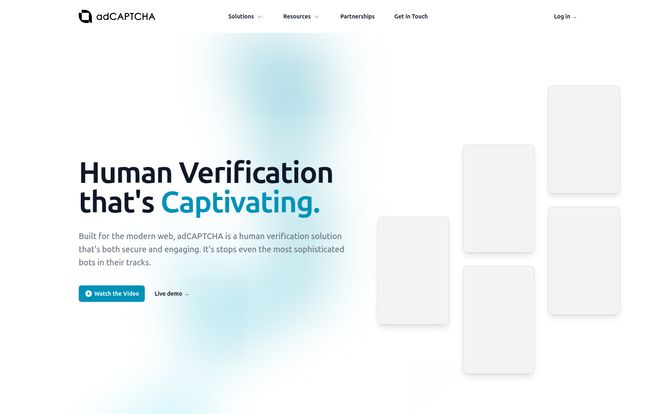
Visit adCaptcha
A Genuine Commitment to Privacy
Here’s the killer feature for me. adCaptcha is privacy-focused. They state clearly that they don’t use cookies and they don’t track users across the web. They only collect the absolute minimum data needed to ensure the interaction is secure and legitimate. In an era where data privacy is paramount, this is a massive differentiator. You can protect your site from bots without having to sell your users’ digital souls to a tech giant. This is a huge win for building trust with your audience.
Turning a Cost Center into a Marketing Channel
Okay, this is the part where my inner marketing and CPC nerd gets really excited. adCaptcha has a brilliant twist: you can use the media slot for your own purposes. Think about it. That verification step is a moment where you have the user's guaranteed, undivided attention. Instead of just being a security hurdle, it becomes a new piece of website real estate.
- Promote your own stuff: Got a new product, a big sale, or a piece of content you want to promote? Put it in the adCaptcha slot. It's a guaranteed touchpoint.
- Monetize your traffic: You can also sell that media space to advertisers. The platform essentially helps you turn your security measures into a potential revenue stream. They even have a model where they charge only for real interactions, which is fair and transparent.
This completely reframes the purpose of a CAPTCHA. It's no longer just a defensive tool; it's an asset. A way to re-engage your audience or even generate a little extra income. That's just smart.
A Quick Look at Integration and Pricing
For any developers reading this, the integration looks incredibly straightforward. They have pre-built components for all the major frontend frameworks like React, Vue, Svelte, and Angular. The website claims you can get it up and running in minutes, and from the looks of the documentation, that seems about right. Easy integration is a huge plus, no one wants to spend a week wrestling with a new API for a CAPTCHA service.
Now, for the pricing. This is the one area where the information is a bit light. There isn’t a public pricing page on their site, which usually means they operate on a custom or enterprise model. You’ll likely have to get in touch with them for a quote based on your traffic volume. While I always prefer transparent pricing tiers, this is pretty common for B2B services in the security space.
But Is It Perfect? A Moment of Realism
No tool is a silver bullet, and it's important to look at potential downsides. My main thought is that while a media-based challenge is more engaging than traditional CAPTCHAs, a user who’s in a hurry could still find any interruption annoying. The quality and relevance of the media will be crucial. A slick, interesting video is one thing; a cheesy, irrelevant ad is another. The success of the "captivating" part relies heavily on the content being served.
I also think some users are so conditioned to be wary of ads that they might have a knee-jerk negative reaction. It's a mental hurdle that adCaptcha will have to overcome, but I think their privacy-first stance helps a lot here. You can assure users it's just a verification step, not a tracking mechanism in disguise.
Frequently Asked Questions about adCaptcha
- What kind of media can I use with adCaptcha?
- It supports both video and image media. This gives you a good bit of flexibility, whether you want to run a quick video ad, a brand animation, or just a static image with a simple call to action.
- How hard is it to integrate on my website?
- It's designed to be super easy. If you're using a modern JavaScript framework like React or Vue, they have ready-made components that should make the process take just a few minutes. For other sites, the API seems pretty simple to work with.
- Does it actually stop sophisticated bots?
- That's the goal. It uses a multi-layered security approach. Instead of relying on a single puzzle, it combines several techniques to identify and block automated traffic, aiming to be a step ahead of bot developers.
- Will adCaptcha work on mobile devices?
- Yes, it's fully responsive and designed to work across all devices, from desktops to tablets and phones. That's a must-have these days, and they've got it covered.
- What data does it collect from my users?
- This is one of its best features: very little. It collects only the minimum technical data required for security and doesn’t use cookies or persistent tracking. It’s a huge plus for privacy.
- Can I really make money with this?
- Potentially, yes. You can use the media slot to re-engage users with your own promotions or you can sell that ad space to third-party advertisers, turning a security feature into a monetization tool.
My Final Thoughts on adCaptcha
Look, the internet is full of tools that promise to revolutionize something. Most of them don't. But adCaptcha feels different. It's not just an incremental improvement; it's a fundamental rethinking of what human verification should be. It takes one of the most universally despised elements of the web and tries to make it secure, private, and even useful.
The combination of a better user experience, a rock-solid privacy policy, and the clever monetization angle makes it a very compelling alternative to the status quo. If you're tired of annoying your users and want to explore a smarter way to handle bot protection, I'd say adCaptcha is absolutely worth a look. It might just be the tool that lets us finally say goodbye to picking out grainy pictures of buses.
